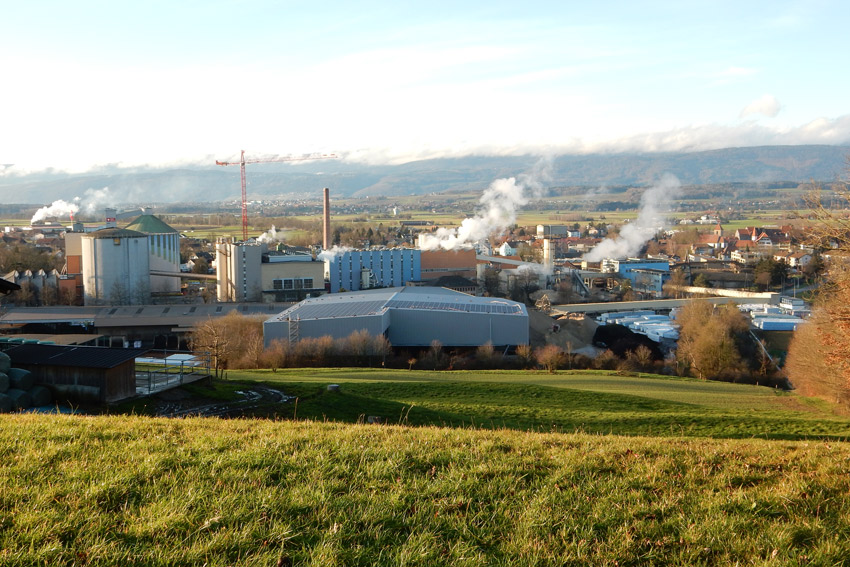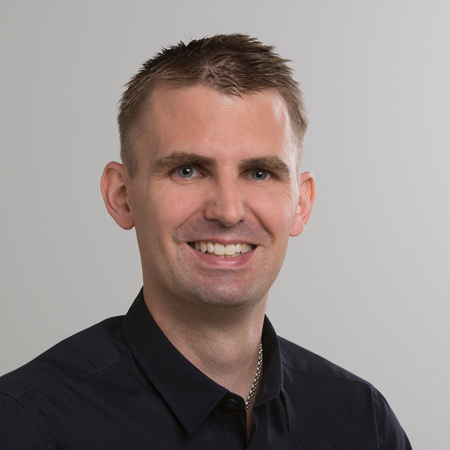Schweizer Zucker AG: modern office and production work tools
Schweizer Zucker AG is now a modern, flexible workplace using leading-edge collaboration tools. The company has committed to a Microsoft strategy and, with the help of Swisscom, is mastering both technological transformation and cultural change.
Modern workplace solutions from Swisscom 4 min.
Limited scope for flexible working, non-standard hardware, cumbersome internal communication processes: these were just some of the reasons why Fernando Kummer, Head of IT at Schweizer Zucker AG, decided the company’s communication and collaboration tools needed an upgrade. ‘We wanted to introduce modern working methods that would enable our employees to operate more efficiently,’ he says.
Schweizer Zucker AG
Founded in 1912, the company has Swiss production sites in Aarberg and Frauenfeld and employs around 250 people. Schweizer Zucker AG(opens in new tab) is the only sugar beet processor in Switzerland and supplies the local market with sugar and the agricultural sector with animal feed. Schweizer Zucker AG also includes the subsidiaries RICOTER Erdaufbereitung AG, Landwirtschaft AG and Deltaflor GmbH based in Kehl, Germany.
The aim: achieve a modern, flexible workplace
According to Fernando Kummer, the company’s IT structure was good and stable prior to the modernisation, but no longer suitable for how people work today. Many office workers could not work or make phone calls from home. Much production and maintenance work was paper-heavy and machine defects had to be photographed with a digital camera and then loaded onto a PC via SD card.
‘We wanted all employees to have a modern, flexible workplace, including leading-edge collaboration tools.’ This is why Schweizer Zucker AG decided to introduce Microsoft 365 and update its telephone system. In addition, it equipped all of its employees with laptops or smartphones with data packages – including staff involved in production and maintenance.
Governance and security
Governance and permission management for Microsoft Teams, SharePoint and Azure Active Directory is central to the rollout of Microsoft services. Fernando Kummer explains: ‘The default permissions must be specifically adapted and regularly checked. IT needs to know who is doing what in order to prevent uncontrolled developments and shadow IT, while at the same time ensuring data protection and security.’ Schweizer Zucker AG employees established everything that would be needed to parameterise the individual processes and applications in workshops together with Swisscom and developed a set of rules from this.
Accessibility, mobility and convenience
Thanks to the modern work tools, the employees can now operate efficiently in the office, at home and on the move. Production and maintenance staff have also benefited immensely and can now use their smartphones to readily exchange information in their departments. The smartphones and M365 enable them to easily access the intranet and view work orders. What’s more, they can now photograph machine defects with their smartphones and store the images in the cloud, where they are available to other users. This small example is illustrative of the many similar efficiency and convenience gains achieved by Schweizer Zucker AG.
New working methods require cultural change
Hand in hand with this modernisation, there has been a marked change in how employees work throughout the company. ‘Particularly with the use of Microsoft Teams, a cultural change is taking place. While the chat and meeting functions were particularly popular at the beginning, more and more of this collaboration tool’s wide-ranging features are being used as time goes by.’
In respect of this change, too, Fernando Kummer emphasises the importance of a gradual rollout and also supporting and encouraging employees to explore the new tools. ‘Such tools can be quickly implemented from a technical perspective, but it takes a lot of time to get people using them in their day-to-day work,’ he says. That is why the company has also relied on Swisscom for personnel and professional support with its change management. Together with Schweizer Zucker AG, Swisscom’s change experts developed specific use cases for different user groups and a training concept. Training webinars were carefully planned and conducted by Swisscom according to each group’s individual needs.
Fernando Kummer has found it very beneficial that the company can not only get the technology from Swisscom, but also the change management support: ‘In addition to the technical implementation, our engineering partner is also responsible for change management. That’s been a godsend for us.’
Basis for digitalisation in specialist departments
Schweizer Zucker AG chose the Microsoft ecosystem for strategic reasons. It serves as the basis on which it can push ahead with digitalisation and automation in its specialist departments, including data evaluation and visualisation as well as process automation.
Even right now, the company is reaping many benefits from its investment in modern working methods. ‘Our processes are already much more efficient and convenient,’ says Fernando Kummer. For this kind of successful outcome, he firmly believes: ‘Technological and cultural change must go hand in hand. Transition requires commitment, and management must support the changes and exemplify the new ways of working.’




